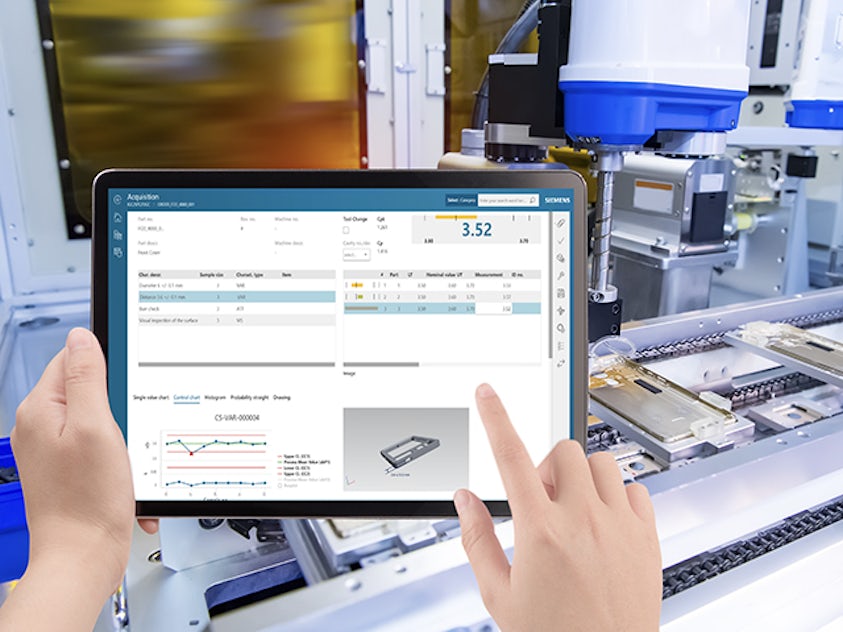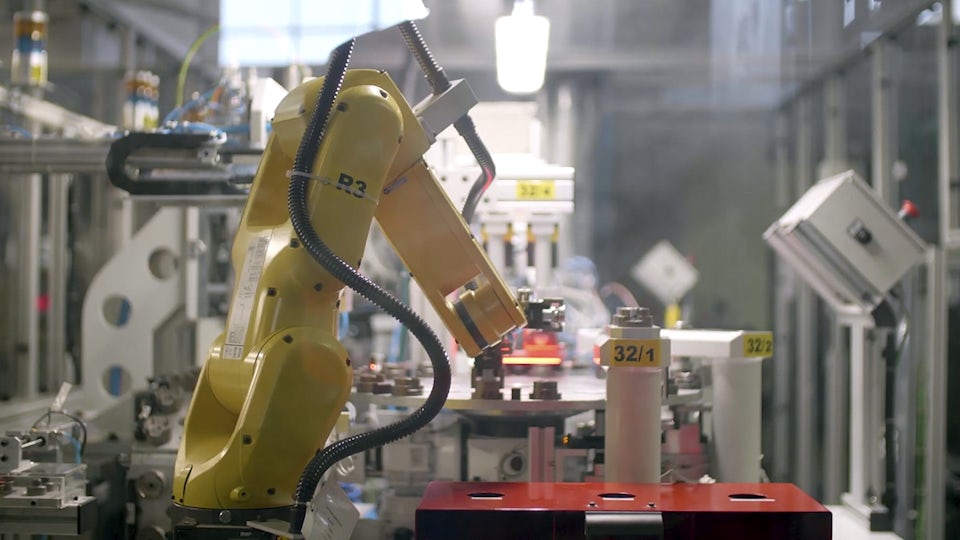Pełna kontrolę jakości produkcji
Korzystanie z Opcenter Quality Control umożliwia połączenie kompleksowego cyfrowego bliźniaka z funkcjami oprogramowania Teamcenter Quality w rzeczywistej produkcji. Korzystanie z oprogramowania Opcenter Quality Control wspiera wszystkie procesy jakości na hali produkcyjnej.
Definiowanie i wykonywanie planów inspekcji
Oprogramowanie Opcenter Quality zapewnia jakość produktu i procesu, definiując kryteria kontroli w połączeniu z planem kontroli dla całego zestawu działań związanych z jakością Twojej firmy. Teamcenter Quality definiuje plany kontroli i inspekcji, następnie Opcenter Quality Control rozpoczyna zbieranie danych, dokumentowanie wyników inspekcji i kontrolowanie procesów produkcyjnych.
Zarządzanie inspekcjami w celu uwzględnienia podstawowych procesów jakości
Oprogramowanie Opcenter Quality Control umożliwia kontrolę pierwszych próbek (FSI) i realizację procesu zatwierdzania części produkcyjnych (PPAP). Można zdefiniować kryteria kontroli istotne dla produktu i procesu, aby przyporządkować inspekcje do pierwszego pobrania próbek/wydania pierwszej sztuki, zakupionej części/surowców, produkcji/montażu i kontroli końcowej, w tym kontroli losowych opartych na ilości.
Pomiar jakości za pomocą statystycznej kontroli procesu
Opcenter Quality Control obejmuje statystyczną kontrolę procesu (SPC) i narzędzia oceny do pomiaru i kontroli jakości w całym cyklu życia produktu. Można tworzyć wykresy kontroli jakości produkcji, aby graficznie wykreślić i odróżnić przypadkowe i systemowe czynniki jakości, które mogą wpływać na operacje produkcyjne.
Kontrola zarządzania jakością dostawców
Możesz również wykorzystać kluczowe narzędzia do zarządzania jakością dostawców, dzięki dostępnym możliwościom oceny dostawców. Oprogramowanie Opcenter Quality Control zapewnia zabezpieczenia, dzięki czemu każdy z Twoich dostawców działa zgodnie z Twoimi standardami i jest odpowiednim partnerem biznesowym.
Usprawnienie zarządzanie niezgodnościami
Opcenter Quality Control wspiera niezbędne procesy, które są przeprowadzane w przypadku odchyleń, w tym wykrywanie odchyleń tolerancji podczas pomiarów. Może to nawet obejmować dostosowanie specyfikacji kontroli do warunków produkcji. Wszystkie informacje mogą być pobierane przez Teamcenter Quality w celu właściwej analizy rozwiązywania problemów.



